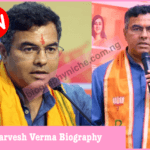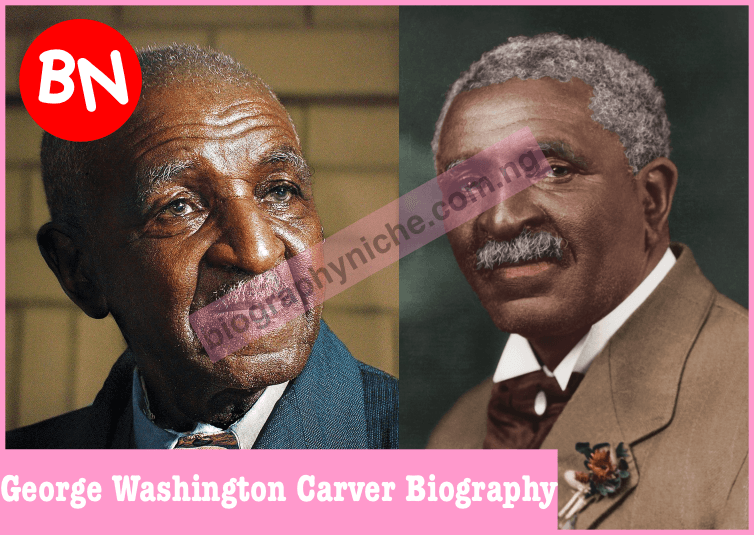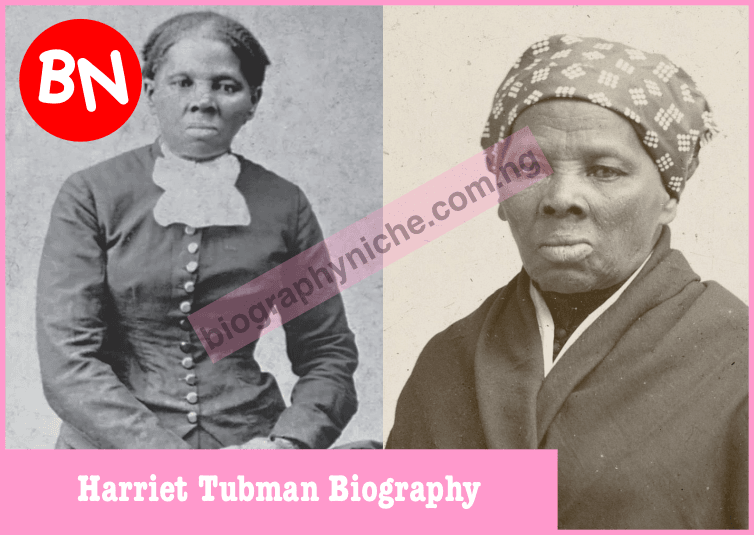Swami Vivekananda Biography – Explore the inspiring life of Swami Vivekananda, his childhood, monkhood, philosophy, famous quotes, and contributions to spirituality. Learn about his teachings, achievements, and lasting impact on the world.
- Swami Vivekananda Biography: Personal Information
- Key Takeaways
- Early Life and Childhood
- Meeting with Sri Ramakrishna and Monkhood
- Journey to the West and Chicago Speech
- Founding of the Ramakrishna Mission
- Philosophy and Teachings
- Famous Quotes of Swami Vivekananda
- Interesting Facts about Swami Vivekananda
- Conclusion
- FAQs About Swami Vivekananda Biography
Swami Vivekananda was one of the most influential spiritual leaders of the 19th century. He played a significant role in introducing Indian philosophy and spirituality to the Western world through his powerful speeches and teachings. Born as Narendranath Datta in 1863, he became a disciple of the great saint Sri Ramakrishna and later established the Ramakrishna Mission, which continues to spread his teachings.
His speech at the Parliament of the World’s Religions in Chicago in 1893 brought him international recognition, where he emphasized the importance of religious tolerance, unity, and service to humanity. Swami Vivekananda’s teachings continue to inspire millions across the globe. This article explores his life, childhood, monkhood, philosophy, interesting facts, and contributions to society.
Swami Vivekananda Biography: Personal Information
| Field | Details |
|---|---|
| Name | Swami Vivekananda (born Narendranath Datta) |
| Profession | Hindu Monk, Philosopher, Spiritual Leader |
| Nationality | Indian |
| Age at Death | 39 years (January 12, 1863 – July 4, 1902) |
| Wife | Never Married (Lived as a Monk) |
| Education | Scottish Church College, Kolkata |
| Net Worth | No personal wealth; devoted life to service |
| Famous Quotes | “Arise, awake, and stop not till the goal is reached.” |
| Founder of | Ramakrishna Mission & Ramakrishna Math |
| Philosophy | Vedanta, Yoga, Universal Brotherhood |
Key Takeaways
- Swami Vivekananda was a Hindu monk, philosopher, and disciple of Sri Ramakrishna.
- He introduced Indian spirituality to the Western world, emphasizing Vedanta, Yoga, and religious harmony.
- His famous Chicago speech in 1893 made him internationally renowned.
- He founded the Ramakrishna Mission to serve society through education, healthcare, and humanitarian activities.
- His teachings inspire millions today, focusing on self-confidence, service, and spiritual awakening.
Early Life and Childhood
Swami Vivekananda was born Narendranath Datta on January 12, 1863, in Kolkata, India. His father, Vishwanath Datta, was a lawyer, and his mother, Bhuvaneshwari Devi, was a deeply religious woman. From a young age, Narendranath displayed exceptional intelligence and a deep interest in spirituality.
He was highly energetic and curious, often asking thought-provoking questions about life and God. His questioning nature led him to explore various religious philosophies, and he was particularly fascinated by Vedanta and Hindu scriptures like the Bhagavad Gita and Upanishads.
During his youth, he was influenced by the Brahmo Samaj, a reformist movement in Bengal that opposed idol worship and promoted monotheism. However, his spiritual quest truly took shape when he met his guru, Sri Ramakrishna Paramahamsa, in 1881.
Meeting with Sri Ramakrishna and Monkhood
Narendranath first met Sri Ramakrishna at Dakshineswar Kali Temple near Kolkata. He was initially skeptical of Ramakrishna’s divine experiences but gradually became convinced of his spiritual greatness. Under Ramakrishna’s guidance, he underwent a profound spiritual transformation and embraced renunciation and service to humanity.
After Sri Ramakrishna’s passing in 1886, Narendranath and his fellow disciples took monastic vows and adopted the life of monks. He took the name Swami Vivekananda and embarked on a journey across India, witnessing the struggles of the common people. This experience deeply influenced his vision of social service and education.
Journey to the West and Chicago Speech
In 1893, Swami Vivekananda traveled to the United States to participate in the Parliament of the World’s Religions held in Chicago. His historic speech began with the words:
“Sisters and Brothers of America,”
which received a standing ovation from the audience. He spoke about universal brotherhood, religious tolerance, and the greatness of Hindu philosophy. His speech made him a global spiritual icon, and he spent the next few years lecturing across the USA and Europe, spreading Vedanta and Yoga.
Founding of the Ramakrishna Mission
After returning to India in 1897, Swami Vivekananda founded the Ramakrishna Mission and Ramakrishna Math to promote education, healthcare, and spiritual enlightenment. The mission established schools, hospitals, and relief centers, focusing on selfless service (Seva) as a form of worship.
His teachings emphasized:
- Education for all – He believed in practical education that empowers individuals.
- Spiritual growth – He encouraged meditation, self-discipline, and devotion to God.
- Service to humanity – He saw serving the poor as the highest form of worship.
Philosophy and Teachings
Swami Vivekananda’s teachings were rooted in Vedanta and Yoga, emphasizing the oneness of existence and the power of the human spirit. Some of his core principles include:
- Faith in oneself – He encouraged self-confidence and fearlessness.
- Strength and courage – He believed that spiritual and physical strength are essential for progress.
- Religious tolerance – He promoted harmony among different religions, stating that all paths lead to the same truth.
- Service to society – He believed that serving others is the highest duty.
Famous Quotes of Swami Vivekananda
- “Arise, awake, and stop not till the goal is reached.”
- “Take risks in your life. If you win, you can lead! If you lose, you can guide!”
- “You cannot believe in God until you believe in yourself.”
- “In a day, when you don’t come across any problems, you can be sure that you are traveling in a wrong path.”
- “The best way to find yourself is to lose yourself in the service of others.”
Interesting Facts about Swami Vivekananda
- He was a vegetarian and believed in simple living.
- He introduced Yoga and meditation to the West.
- His birthday (January 12) is celebrated as National Youth Day in India.
- He memorized entire books just by reading them once.
- His death at 39 years was predicted by himself – he believed he would not live beyond that age.
Conclusion
Swami Vivekananda’s life was dedicated to spirituality, education, and service. His vision of a strong and self-reliant India continues to inspire people worldwide. Through his teachings, he showed that spirituality and service go hand in hand. His contributions to philosophy, social reform, and global religious discourse remain invaluable. Today, his legacy is carried forward by the Ramakrishna Mission, and his teachings continue to empower individuals on their path to self-realization and service to humanity.
FAQs About Swami Vivekananda Biography
1. Who was Swami Vivekananda?
Swami Vivekananda was a Hindu monk, philosopher, and spiritual leader who introduced Indian philosophy to the Western world.
2. Did Swami Vivekananda have a wife?
No, Swami Vivekananda lived as a monk and remained celibate throughout his life.
3. What was Swami Vivekananda’s famous speech?
His Chicago speech in 1893 at the Parliament of the World’s Religions made him internationally famous.
4. What is Swami Vivekananda’s most famous quote?
“Arise, awake, and stop not till the goal is reached.”
5. When did Swami Vivekananda pass away?
He passed away on July 4, 1902, at the age of 39.
 Early Life, Family,
Early Life, Family, 
 Early Life, Family, Parents, Quotes, Accomplishments, Facts" loading="lazy" width="180" height="120">
Early Life, Family, Parents, Quotes, Accomplishments, Facts" loading="lazy" width="180" height="120"> Wiki" loading="lazy" width="180" height="120">
Wiki" loading="lazy" width="180" height="120">







